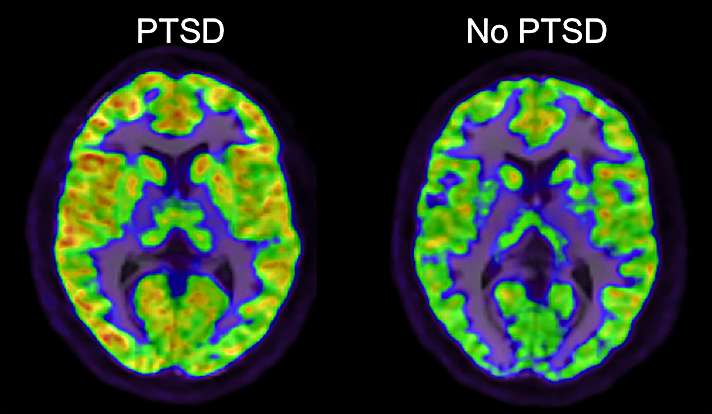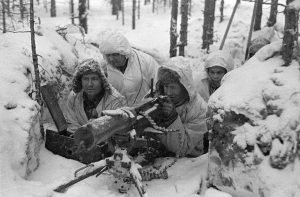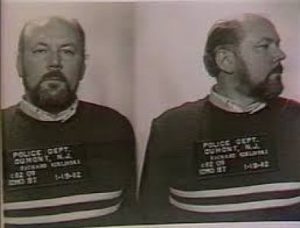Winner of the Fall 2018 StMU History Media Award for
Best Article in the Category of “Military History”
Best Article in the Category of “Science & Technology”
Charles Meyers, a Medical Officer, introduced the term “Shell Shock” to explain symptoms of Post Traumatic Stress Disorder (PTSD) displayed by military after combat in World War I (WWI). Soldiers often experienced symptoms including fatigue, tremor, confusion, nightmares, impaired sight, and impaired hearing. Meyers assumed that these symptoms were caused by the soldiers’ exposure to exploding shells, not necessarily the trauma they were witnessing or going through. In these years, symptoms of widespread PTSD were considered “weak” traits for soldiers by their colleagues and bosses. Even society as a whole started to view these symptoms negatively, which led to the destruction of their relationships after the Shell Shocked soldiers arrived home.1
Military gave Shell Shock victims no sympathy. When soldiers were dismissed from their duties, they were given labels such as “cowardice” or “emotionally weak.” These labels led to soldiers being targeted for abuse from their own side, as well as mock trials in which they were convicted. The pardons they received weren’t honorable, so they were often ashamed of their disorder, which led to more mental issues among the soldiers like depression, anxiety, and even suicide.2

New treatments flipped understandings of how World War I caused drastic changes in the behaviors of these men. Treatment for Shell Shocked victims before Arthur Hurst’s “miracle treatments” were very harsh, as they were often treated with Electroconvulsive Therapy, emotional deprivation, shaming, and solitary confinement. Some of the lesser treatments were hypnosis, massage, rest, and dietary treatments.3
Arthur Hurst primarily used occupational therapy to treat Shell Shocked patients, treating them as humanely and sympathetically as possible. This dignified care allowed for the increased numbers of “saved” soldiers, as they found ways to overcome the abuse and the labels given to them after their dishonorable discharges. Hurst’s treatments became iconic after the Newton Abbott’s Seale Hayne in Devon. Hurst’s approach allowed for 90% of Shell Shocked soldiers to be cured after only a single session.4

Modern day treatments, consist of therapy, as well as new medicines that aid in the control of the symptoms. According to Michael James, a pharmacist, there are Selective Serotonin Reuptake Inhibitors (SSRIs) that block the re-uptake of serotonin in the brain and help with sleep disorders, nightmares, and decreases intrusive thoughts. James also informed me that Serotonin Norepinephrine Reuptake Inhibitors (SNRIs) block the re-uptake of serotonin and norepinephrine in the brain which also decrease intrusive thoughts and provide aid for sleep disorders and nightmares.5
Hurst’s approach led to a change of heart and a consensus to the overall approach by society as a whole. Now, Veterans Affairs, also known as the VA, has a large program that provides aid to veterans with PTSD. However, this evolution of PTSD has not only been beneficial to veterans, but it has also allowed for a more diverse diagnosis of PTSD, in which it is more understood that other people, in addition to veterans, can also experience PTSD. PTSD can be caused from any sort of trauma including car accidents, violent crimes, and domestic violence. Individuals can even develop PTSD from having someone important abandon them as well. The DSM-5 has set a variety of symptoms for PTSD because just like any other disorder, it affects every individual differently. This document allows all individuals to gain access to the tools and help they need to recover from or live with PTSD.6

- Caroline Alexander, “The Shock of War,” Smithsonian Magazine, September 2010, https://www.smithsonianmag.com/history/the-shock-of-war-55376701/. ↵
- “Shell Shock,” BBC Inside Out, March 3, 2004, http://www.bbc.co.uk/insideout/extra/series-1/shell_shocked.shtml. ↵
- “Electroconvulsive Therapy: A History of Controversy, but Also of Help,” The Science Explorer, January 13, 2017, http://thescienceexplorer.com/brain-and-body/electroconvulsive-therapy-history-controversy-also-help; “Arthur Hurst: The Man Who Filmed Shell Shock,” BBC Radio 4, http://www.bbc.co.uk/programmes/articles/4VqPtrjsgcPKtgmYc2M5vXz/arthur-hurst-the-man-who-filmed-shell-shock. ↵
- “Arthur Hurst: The Man Who Filmed Shell Shock,” BBC Radio 4, http://www.bbc.co.uk/programmes/articles/4VqPtrjsgcPKtgmYc2M5vXz/arthur-hurst-the-man-who-filmed-shell-shock. ↵
- Email with Michael James, September 11, 2018. ↵
- Pete Walker, From Surviving to Thriving (Scotts Valley, CA: CreateSpace Independent Publishing Platform, 2013), 13-14. ↵



160 comments
Marissa Rendon
It saddened me that military showed no remorse to soldiers with shell shock, such as being given labels like “coward” or “emotionally weak” which is not true about them whats so ever. Its sad to know that shell shock victims at the time didnt get the proper treatment they needed. This article was an excellent article to read about, I feel as if I am much more educated on PTSD
Adrianna Hernandez
Before reading this article I knew what PTSD was but never knew that it used to be referred as “shell shock.” While going through the article I learned that PTSD can be caused by many factors not just specifically when soldiers come back home from deployment. I have a close friend that was diagnosed with PTSD but I never asked why or how she got it, but after reading this article I got a better understanding of how she could’ve developed having PTSD.
Aaron Sandoval
This was a really well-written article, that covers an important topic. Over time as a society, we have come to accept disorders such as PTSD as a fact rather than an excuse. The trauma that those who fought for this country have endured deserves more recognition, and it is truly saddening that for a long time they were not given the treatment they needed, and were not given the support they needed. It has gotten better over time, but I feel like more work needs to be done to assist those who return from war.
Destiny Lucero
It is amazing to see the progress of understanding and the process of acceptance that we have put into PTSD over centuries. Imagine how terrifying it would be to have a love one have a flashback and go into an episode while neither one of you, nor doctors, know what is going on because “shell shock” was relativity new. That’s a scary place to be. For these poor souls that had to go through the torture of being a genie-pig for new treatments, only to realize later how inhumane those treatments were was a huge step in history. No one with mental health issues should be abused further for an episode that they can not control. I’m happy at how far treatments have come.
Lesley Martinez
It is essential to know the meaning of Post-Traumatic Stress Disorder (PTSD) and how it affected and continues to affect soldiers when they return home. The ability of medical officers to identify the symptoms that soldiers experienced after combat in World War I is motivating. The comparison you made reflecting the remedies that “Shell Shocked” soldiers received, such as occupational therapy, compared to the modern-day treatments like Selective Serotonin Reuptake Inhibitors (SSRIs) is inspiring. Ultimately, being able to write about this and recognize that other traumas can alter PTSD is remarkable.
Jose Maria Llano Aranalde
This article did a really good job in showing how our perspective and understanding of PTSD has changed over time. Its hard to see how people were being treated and talked about. They were seen as cowards because of the condition that they had. Just because we didn’t understand it we saw it easier to judge them instead of trying to understand them. PTSD is really hard to deal with and now that we have a better understanding we can see it effect on people.
Lauren Keller
Before reading this article, I had never known that the term “shell shock” referred to the symptoms of PTSD that soldiers exhibited. It also saddened me to read that these soldiers were seen as cowards or weak due to a psychological condition that developed because they were serving their country. Instead, I believe that we should be working with veterans in getting them the help they need and graciously thanking them for their service, similar to what the VA has done. I’m glad that the VA exists to get veterans the help that they need as well as bringing awareness to PTSD so that other people living with it feel more comfortable getting help as well.
Daniel Ramirez
It is truly saddening to hear that our veterans come back with so many mental disorders and traumas that invade their lives. It is very unfortunate that so many live with these symptoms. Not even from their own superiors could they find support for the trauma they have endured in their time of service for their country. It very unfortunate to think that men were consider to be “weak” as this writer so clearly stated it, for it was completely out of their control, as most diseases are. Luckily Hurst, was able to emerge with a new better way to treat those who had fallen for this among other mental illnesses.
Gabriel Lopez
I really like this article because it gave a lot of information, despite being short. I can’t imagine what those soldiers were feeling when they were being called cowards and dishonorable because of the misunderstanding of what they had. I’m grateful that we now know how to properly treat people with PTSD, and I hope those that were dismissed because of their condition are recognized in some fashion today.
Ashley Martinez
It is absolutely awful that those that served for our country were receiving back-lash for having Post Traumatic Stress Disorder after all that they endured. People had no right to judge those who had been in battle, they had no idea what these people had experienced. I think that as an entire society we could be more empathetic and understanding about the way these fellow active duty members handle their PTSD. PTSD is not something that is extremely easy to deal with and having that extra support would make it that much easier to help those dealing with it.